Singapore’s sovereign wealth fund, GIC Pte Ltd, remains optimistic about the growth potential within the fintech sector, even in the face of a downturn that has seen startup valuations tumble as investors become increasingly wary of riskier ventures.
Chris Emanuel, who leads GIC’s technology investment group, expressed enthusiasm for the innovative strides being made in financial product distribution, which present global scaling opportunities. Fintech offers the prospect of financial inclusion for millions of unbanked or underbanked individuals worldwide, and presents opportunities to democratise access to financial services for small and micro companies, a mission in which GIC is actively participating.
However, the global technology industry has recently been hit by a severe downturn, which has led to mass layoffs, depressed fundraising activity, and a significant reduction in the valuations of previously thriving startups. Not even GIC or sister entity Temasek Holdings have been immune to these adverse effects, despite their long-term investment strategies.
Nonetheless, Singapore’s sovereign wealth fund has invested in a variety of fintech companies around the world. However, due to the nature of investment activities, comprehensive lists of GIC investments are not publicly disclosed or may be incomplete.
That said, some of the notable fintech investments by GIC over the years include:
Stripe
GIC joined a Series I funding round of more than US$6.5 billion for payments firm Stripe that put the Irish/US fintech at a US$50 billion valuation — nearly half what the company was estimated to be worth in March 2021, when it was valued at US$95 billion.
GIC and other new investors Temasek and Goldman Sachs Asset and Wealth Management joined existing Stripe backers Andreessen Horowitz, Baillie Gifford, Founders Fund, General Catalyst, MSD Partners, and Thrive Capital.
The funds raised in the ‘Series I’ round will be employed to “provide liquidity to existing and former employees and address employee withholding tax obligations associated with equity awards”, according to the company.
Stripe’s payment processing platform is utilised by tens of thousands of businesses for online transactions. The company’s business model revolves around taking a minor percentage of each payment. It also offers a suite of additional services, ranging from invoicing and billing to fraud management.
Despite a partial recovery of tech stocks from the late 2022 downturn, valuations remain considerably beneath their zenith from the previous summer. In the past year, Stripe announced a workforce reduction of 14%, which also affected its base in Ireland.
Razorpay
Indian payment gateway Razorpay secured US$100 million in Series D financing from GIC in 2020 to achieve unicorn status, in a round co-led by Sequoia with participation from their existing investors Ribbit Capital, Tiger Global, Y-Combinator and Matrix Partners.
At the time, of the 42.5 million SMEs in India, 53% didn’t have access to digital financial tools. Razorpay said 2 out of 3 businesses onboarding its payments products were accepting digital payments for the first time.
claimed to be the first operational neobank to become a unicorn with its RazorpayX platform. Within twelve months of its launch, RazorpayX is said to have served over 10,000 businesses, paying for expenses through RazorpayX Corporate Card, paying their vendors in real time, and processing payroll.
Coda Payments
Singapore-based Coda Payments secured a record-breaking investment of US$690 million in 2022, from Singapore’s sovereign wealth fund GIC, alongside American firms Insight Partners and Smash Capital. This investment catapulted the valuation of the online gaming payments platform to an impressive US$2.5 billion.
Despite already boasting a robust cash flow, which surged fourfold to US$68 million in the year ending September 2021 as per Singapore’s regulatory filings, the company plans to utilise the new funds for further growth.
Similar to Stripe, Coda Payment’s software facilitates payment processing for some of the world’s most prominent sites, including Activision Blizzard, Riot Games, Sea Group’s Garena, Netease, Tencent, and Tinder. Coda processes over a million transactions per day, taking a 15% cut from each – a rate significantly lower than its primary competitors, Apple and Google.
Coinbase
GIC was reportedly among the investors contributing to a US$300 million fundraising effort by US cryptocurrency exchange Coinbase Inc. in 2019, according to sources close to the matter.
Coinbase confirmed receiving investment in its Series C funding round from firms such as Tiger Global Management, Wellington Management, and Andreessen Horowitz, but GIC’s involvement remained undisclosed until later.
Shortly after the disclosure, the cryptocurrency exchange was embroiled in the #deletecoinbase controversy on Twitter, due to Coinbase’s questionable acquisition of Neutrino, whose founders were accused of selling spyware to authoritarian regimes.
Affirm
GIC participated in a funding round for Affirm Holdings , a ‘buy now, pay later’ (BNPL) company specialising in providing instalment loans to online shoppers and consumers at the point of sale.
The company was established in 2017 by Max Levchin, co-founder of PayPal Holdings and its largest shareholder. Affirm boasts a distinguished roster of investors, including Singapore’s sovereign wealth fund, GIC Pte Ltd, Khosla Ventures, Founders Fund, Lightspeed Venture Partners, and Shopify.
Following its initial public offering (IPO) in 2021, during a period characterised by stratospheric valuations of multi-billion-dollar technology companies, Affirm saw its share price almost double. By the close of that year, the BNPL firm commanded a market value exceeding US$23 billion.
N26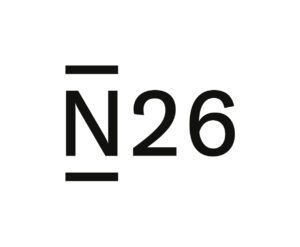
Singapore’s sovereign wealth fund participated in a US$300 million Series D funding round in 2019 for N26, a neobank that subsequently became Germany’s most valuable fintech enterprise with over seven million customers across 25 countries. At the time, GIC was in illustrious company with other contributors including Chinese internet behemoth Tencent, venture capital firm Earlybird, and Silicon Valley investor Peter Thiel.
Fast forward to 2021, and the digital bank known for its mobile banking app completed a staggering US$900 million funding round, which elevated the company’s valuation to over US$9 billion. The roster of backers for this round included Third Point Ventures, Coatue Management, Dragoneer Investment Group, as well as existing N26 investors.
Square
Square, an influential player in advancing the acceptance of diverse payment forms amongst small and medium businesses, attracted investment from GIC in 2014. At that point, Square was developing a Register that encapsulated a comprehensive suite of services necessary for businesses to deliver an exceptional customer experience and manage their core operations.
GIC is also rumoured to have spearheaded a venture-capital round amounting to US$150 million for Square. This San Francisco-based mobile payments startup was founded by Jack Dorsey, the co-founder of Twitter.
Stash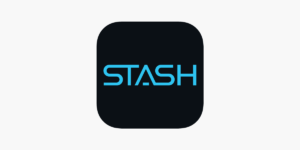
GIC Ptd Lte participated in a funding round for Stash, an American personal finance app, in 2020. GIC invested US$112 million in Stash in April 2020, along with other investors such as LendingTree and T. Rowe Price. Stash personal finance app is an app that offers investing, banking and insurance services for a monthly fee.
The platform has over 6 million customers and US$3 billion in assets under management, enabling micro-investing in a wide variety of individual stock and ETF investment choices, not to mention investing in cryptocurrencies like bitcoin, ethereum, and others.
Blend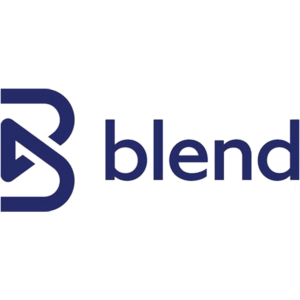
GIC invested in Blend, a startup that makes the mortgage lending process easier for both borrowers and lenders. GIC Ptd Lte participated in a US$300 million Series G funding round for Blend in January 2021, along with other investors such as Coatue and Tiger Global.
Blend is a digital lending platform that powers mortgages, consumer loans, and deposit accounts for over 285 financial institutions.
Bill.com
GIC was a part of a US$100 million funding round for Bill.com, a leading provider of cloud-based software that automates back-office financial operations for small and midsize businesses. Other investors who participated in the round were Franklin Templeton and Mastercard.
Bibit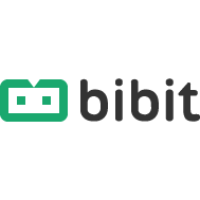
In 2022, Indonesian digital investment application Bibit announced it had secured over US$80 million in a funding round led by GIC. Prosus Ventures, along with other existing investors, also participated in this round.
Bibit plans to utilise the funds raised to launch new products and services, as well as to further technological development. Bibit was launched in early 2019 by Stockbit, with the aim of empowering its users to invest in a diverse range of asset classes.
In addition to the introduction of the e-IPO feature Stockbit Sekuritas and the stock market education tool Stockbit Academy, Bibit was appointed by Indonesia’s Ministry of Finance as a distribution partner for the sale of Government Securities (SBN) in early 2022.
Trumid
GIC invested in Trumid, a fintech company bringing efficiency to credit trading through data, technology, and innovative products. GIC co-led a US$50 million funding round for Trumid in September 2020, along with other investors such as DST Global and Dragoneer Investment Group.
Trumid is a fixed income platform that connects bond traders and provides market data and analytics.
ACORN OakNorth Holdings
Acorn OakNorth Holdings, a UK bank that offers swift, flexible, and accessible debt finance (ranging from £500k to £40m) to smaller mid-market companies and property developers, has raised over US$576 million from various investors over time. In 2018, the SME lender secured US$100 million in funding from backers including GIC, EDBI also of Singapore, NIBC Bank, Clermont Group, and Coltrane Asset Management.
This capital infusion was used to expedite the growth of ACORN machine, a cloud-based financial technology platform that utilises machine learning. This platform enables banks to delve into the SME lending market by automating and speeding up the data-driven loan decision-making processes. Additionally, the funding also facilitated the company’s continued expansion of its lending endeavours within the UK.
The ACORN machine has since been rebranded as OakNorth Analytical Intelligence while the bank is now known as OakNorth Bank.
Chainalysis GIC led a US$170 million Series F funding round which propelled Chainalysis’ valuation to an impressive US$8.6 billion last year.
GIC led a US$170 million Series F funding round which propelled Chainalysis’ valuation to an impressive US$8.6 billion last year.
Existing investors, including Accel, Blackstone, Dragoneer, and FundersClub, bolstered their stakes in the company, with the Bank of New York Mellon and Emergence Capital also joining this investment round. Chainalysis intends to utilise the latest funds to continue driving product innovation and expanding its global operations to meet burgeoning customer demand as the asset class moves towards mainstream acceptance.
Since 2021, Chainalysis has reportedly increased its customer base by 75% and now boasts over 750 customers across 70 countries. This expansion followed a US$100 million Series E funding round in June 2021, led by Coatue, which valued the company at US$4.2 billion at the time.
Bandhan Bank
GIC participated in multiple investments in Bandhan Bank, a commercial bank focused on serving underbanked and underpenetrated markets in India.
In 2020, GIC bolstered its 4.9% stake to 7.4%, purchasing an additional 40.07 million shares for a sum of US$167 million. The Singapore fund was joined this time by sister entity Temasek Holdings (who procured shares worth US$102.5 million) in association with Credit Suisse and Societe Generale.
Bandhan Bank has an extensive network of branches across rural India and is a subsidiary of Bandhan Financial Holdings. The parent company, in collaboration with GIC and private equity firm ChrysCapital, recently acquired IDFC MF with an eye on capitalising on India’s rapidly expanding mutual funds industry.
GreenSky
GIC participated in a funding round for GreenSky, a fintech company that provides technology to banks and merchants to make loans to consumers for home improvement, solar, healthcare, and other purposes.
GIC was one of the investors in a US$50 million funding round for GreenSky in September 2016, along with other investors such as Wellington Management and TPG. GreenSky is a fintech company that provides BNPL solutions for home improvement, healthcare and retail purchases.
Parafin 
GIC spearheaded a US$60 million Series B funding round for Parafin, a fintech infrastructure startup that supports businesses like marketplaces, vertical SaaS providers, and payment processors in launching and integrating financial services for their sellers.
Parafin powers the embedded finance offerings of businesses handling over US$100 billion in payments volume, including the likes of DoorDash Capital and Mindbody Capital. Collectively, companies using Parafin’s services cater to over 700,000 small and medium-sized enterprises globally.
With this additional capital, Parafin plans to further cement its market leadership in embedded financial services by launching innovative new products aimed at small businesses, such as business charge cards.
Stori
 Mexican fintech Stori reached a valuation of US$1.2 billion after a US$150 million series C funding round led by GIC, BAI Capital, and GGV Capital. Lightspeed Venture Partners, General Catalyst, Vision Plus Capital, Goodwater Capital and Tresalia Capital also participated.
Mexican fintech Stori reached a valuation of US$1.2 billion after a US$150 million series C funding round led by GIC, BAI Capital, and GGV Capital. Lightspeed Venture Partners, General Catalyst, Vision Plus Capital, Goodwater Capital and Tresalia Capital also participated.
Stori, a lending platform catering primarily to unbanked Mexicans, became the second Mexican startup in 2022 to attain unicorn status thanks to the funding. The fintech startup offers loans starting from as little as 500 Mexican pesos (approximately US$24), boasts an acceptance rate of 99% of its applicants, and aims to expedite card requests within a mere 10-minute window. This quick turnaround is especially notable in a country where only 31% of the population has access to credit.
Currently, Stori has amassed a client base of over 1.4 million in Mexico and has set a target of reaching 2 million by 2023. Furthermore, the startup has ambitious plans to extend its footprint to other parts of Latin America within the year.
Pagaya Technologies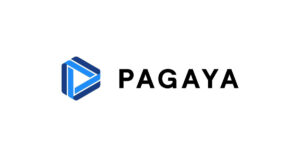
GIC will extend its investment in the US-Israeli fintech Pagaya Technologies for another three years. This comes atop the original five-year term, illustrating GIC’s dedication to nurturing its investments long-term.
GIC will continue to pour investment into Pagaya’s financing vehicle over the extended period, maintaining the same conditions as the existing agreement. GIC is one of the top shareholders of Pagaya with 9% of its Class A shares, which went public in June 2022 after completing a business combination with EJF Acquisition Corp, a SPAC.
Pagaya employs AI to oversee assets for a range of financial entities, including banks, insurance firms, pension funds, asset managers, and sovereign wealth funds. The lion’s share of Pagaya’s revenue is derived from fees remitted by institutional investors who purchase products facilitated by its network.
This ongoing alliance between the two financial powerhouses is set to further solidify Pagaya’s position in the fintech world while enhancing GIC’s robust portfolio, underscoring Singapore’s substantial influence in the global fintech landscape.










